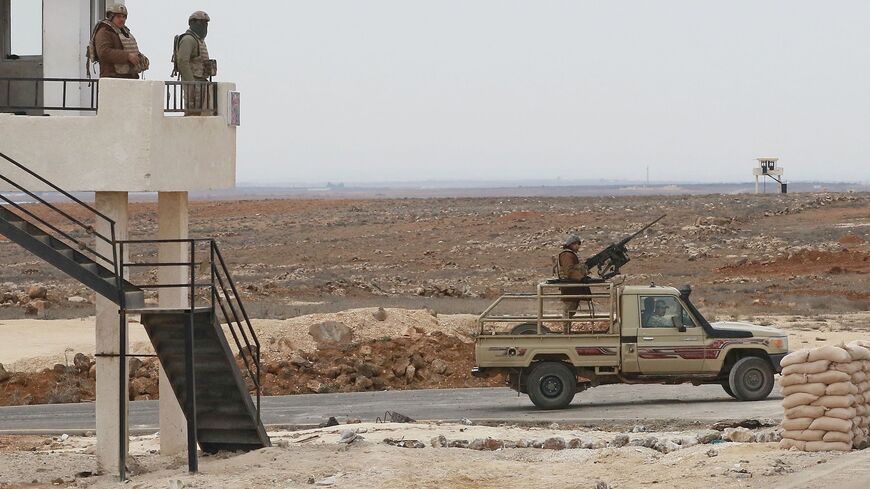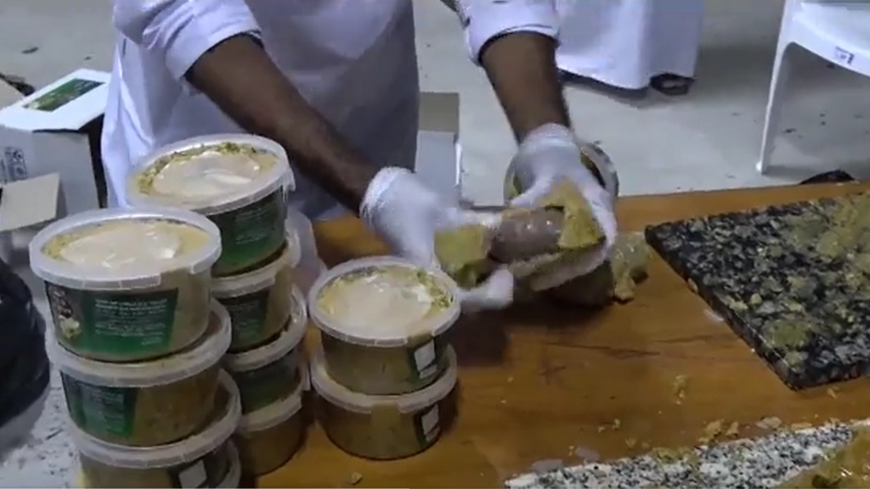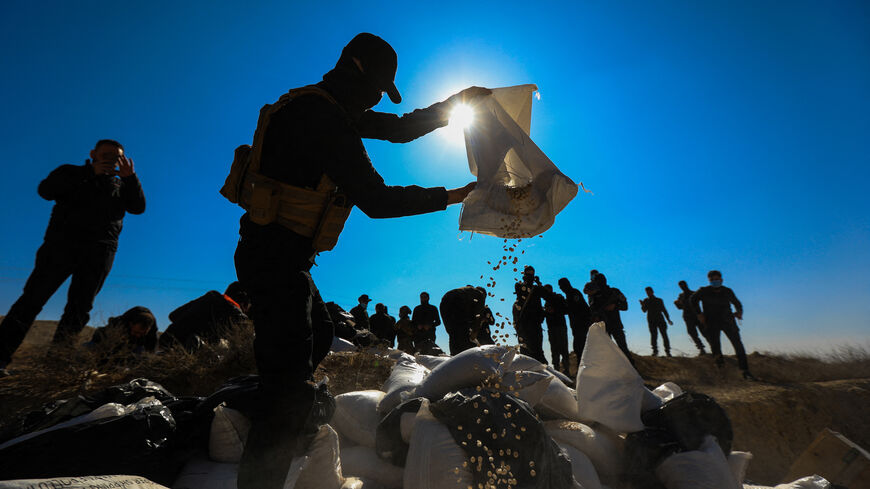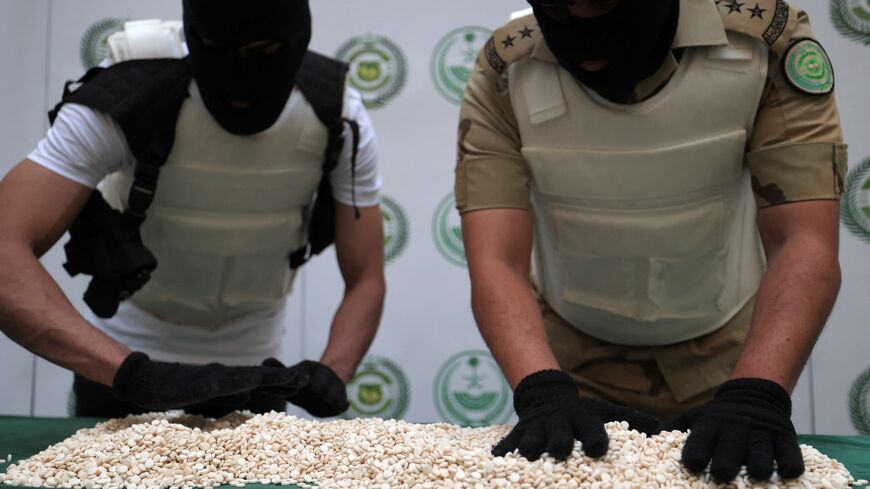Saudi Arabia seizes 1.4 million Captagon pills in latest drug bust
Syria is the main source of Captagon shipments to the Gulf and the new authorities in the country have pledged to crack down on the trade.
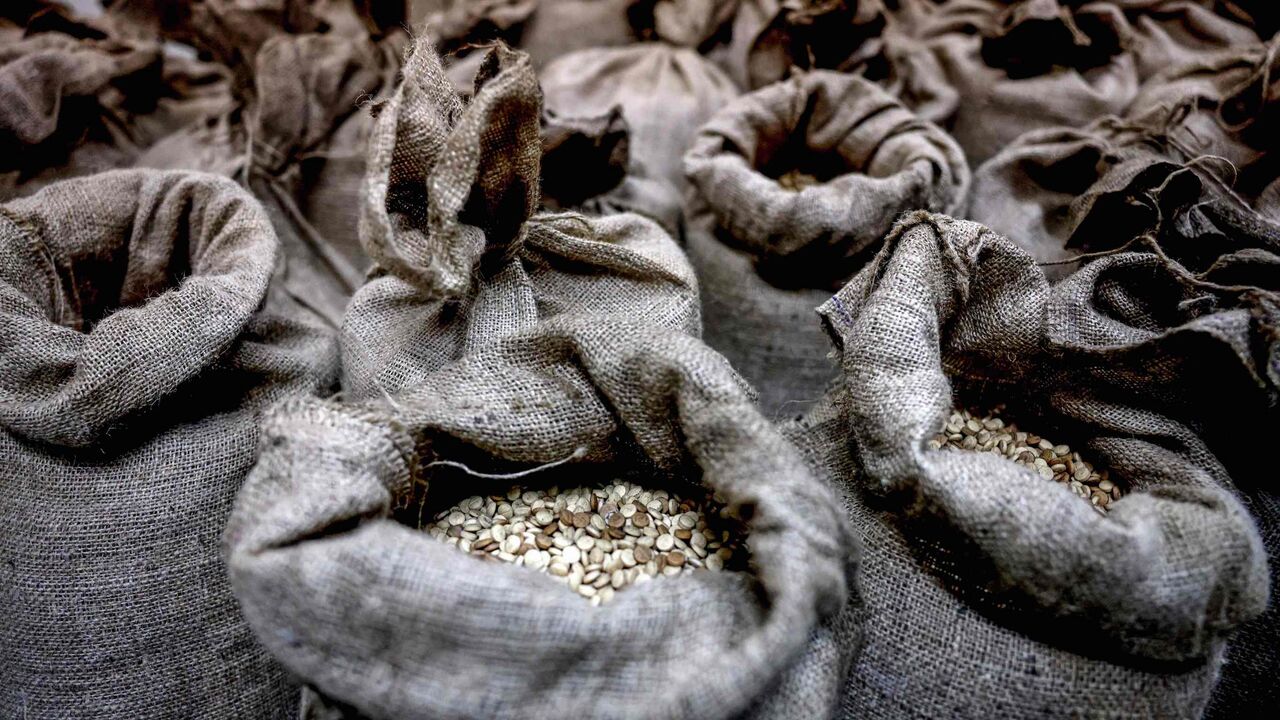
Saudi authorities announced Friday they had thwarted an attempt to smuggle over 1.4 million Captagon pills into the country, highlighting the drug trade's resilience despite political shifts in Syria, the primary source of the narcotic.
The kingdom’s Zakat, Tax and Customs Authority said the 1,482,132 Captagon pills were hidden in a “machine used to rotate laundry” when they arrived at the port of Jeddah in the Red Sea. The intended recipients of the shipment were arrested, the official Saudi Press Agency reported.
The authority did not disclose any additional details, such as the origin of the shipment or the identities of those arrested.
Captagon is an amphetamine-type drug that is especially popular in the Middle East, including in Saudi Arabia and other Gulf states.
Why it matters: Saudi Arabia’s Captagon issue has persisted for years. The Carnegie Endowment for International Peace noted in a July report that addiction is particularly prevalent among teens and young adults, with indications that students use the drug to deal with exams and workers take it to boost their endurance. The Captagon trade has especially affected Saudi Arabia due to its sizable population of more than 35 million and its long land borders, according to the report.
“Among the Gulf states, Saudi Arabia is the country most targeted by Captagon traffickers, because of its large market and extensive borders with Jordan and Iraq,” read the report.
Saudi Arabia has exerted considerable effort in recent years on curbing the flow of Captagon. According to a May report from the DC-based New Lines Institute, there was “a notable increase in arrests related to Captagon smuggling and production” in Saudi Arabia as well as in Turkey and Jordan between 2015 and 2023.
Syria became the primary source of Captagon to the Gulf under ousted President Bashar al-Assad and became a multibillion-dollar industry in the war-torn country. The United Nations Office on Drugs and Crime noted in a 2023 report that Syria was the main point of departure for Captagon shipments to the Gulf.
Assad was ousted in a rebel offensive in early December. The country is now governed by a transitional government led by the Islamist group Hayat Tahrir al-Sham. The new government has pledged to crack down on the Captagon trade and reported earlier this month that it had destroyed millions of Captagon pills.
Curbing the Captagon trade was a major point of discussion in the talks leading up to Syria’s readmission to the Arab League in 2023.
There are signs that regional cooperation on Captagon is increasing. The New Lines Institute said that seizures of Captagon have declined in Saudi Arabia “in part due to the enhanced interdictions in transit countries.”
Jordan has likewise stepped up its efforts to thwart Captagon and seized 9.5 million pills at the Saudi border in June of last year.
Know more: Saudi Foreign Minister Prince Faisal bin Farhan visited Syria on Friday. It was his first trip since the political change in the country. Prince Faisal met Syria’s de facto leader, Ahmed al-Sharaa, in Damascus.

